RARE Photos : Old Mumbai – Mumbai’s infrastructure since 1864!
Mumbai, formerly called Bombay, is India’s financial powerhouse. It is also home to close to 2.10 crore (21 million) people, making it the most populous city in the country.
The city has the highest GDP among all Indian cities and accounts for the largest share of tax paid to the government.
With an ever-growing population, Mumbai has been grappling with its infrastructure which proves to be quite inadequate considering the pace at which the city’s traffic congestion, housing, etc are growing.
And although PricewaterhouseCoopers lists Mumbai as one of the 26 global ‘cities of opportunity’, the city needs improvement across many parameters, like transportation and infrastructure, demographics and liveability, economic clout, cost, lifestyle assets, health, safety and security, ease of doing business, intellectual capital and innovation, technology readiness, and sustainability.
But Mumbai wasn’t always so short of infrastructure. Built on an archipelago of seven islands (Bombay Island, Parel, Mazagaon, Mahim, Colaba, Worli, and Old Woman’s Island), Mumbai has a wonderfully rich history.
In the following pages, we take a look at some of the historic pictures from 1864 onwards that speak volumes about the great city of Mumbai.
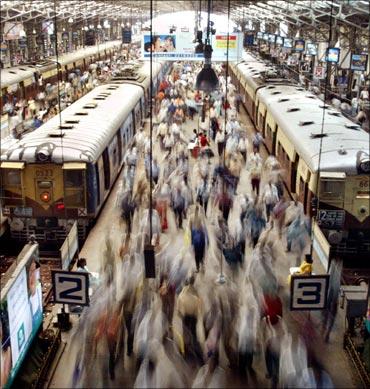
Image: Mumbai’s Chhatrapati Shivaji Terminus, earlier called Victoria Terminus, teems with hundreds of commuters as they rush to board the suburban trains that are the lifeline of India’s financial capital.
Photographs: Reuters
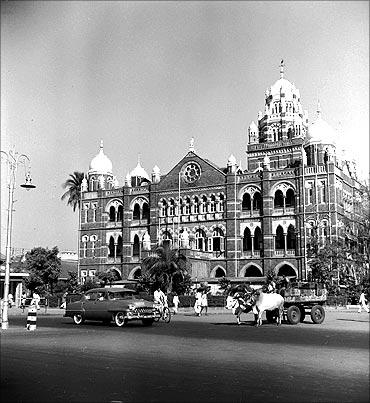
Circa 1955: The Central Telephone Building in Mumbai.
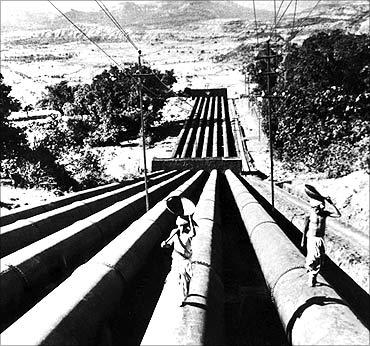
The Tata hydro-electric works in the Bhor Ghats, Bombay, providing electricity for the whole city, circa 1950.
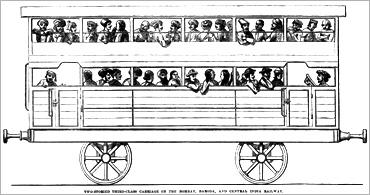
March 12, 1864: A two storeyed, third-class carriage on the Bombay, Baroda and Central India railway.
Original Publication: Illustrated London News — published 1864.
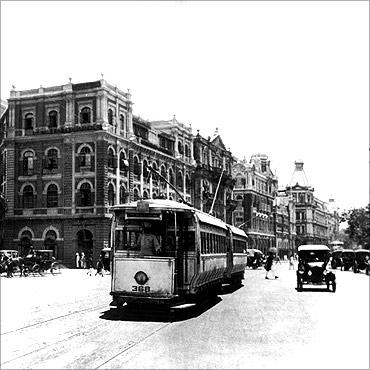
Hornby Road in Mumbai, circa 1930.
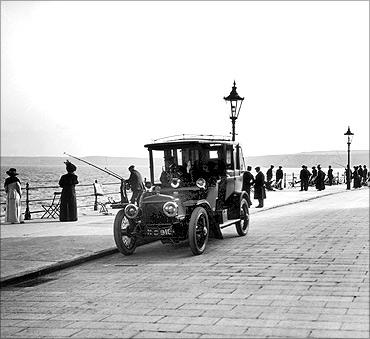
Circa 1912: A sea angling festival in progress on Marine Drive, Scarborough.
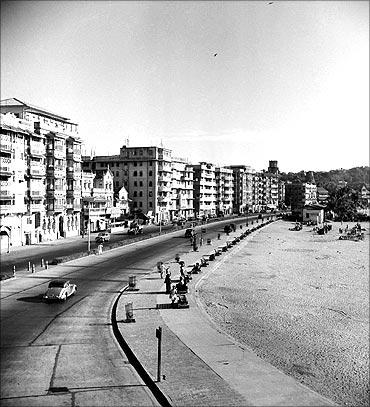
A view of Queen’s Road on Back Bay, Mumbai, with Watson’s Hotel on the right, circa 1950.
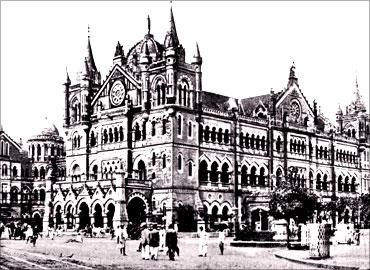
A view of Victoria Station, Mumbai, circa 1920.
Built in 1888 to a design by Frederick William Stevens, it is now known as the Chhatrapati Shivaji Terminus.
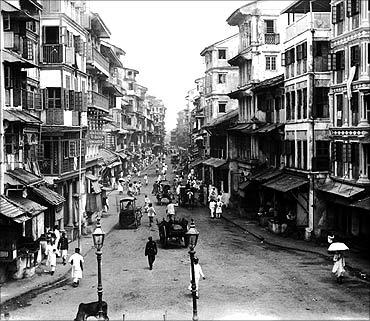
Circa 1935: Borah Bazaar, Mumbai.
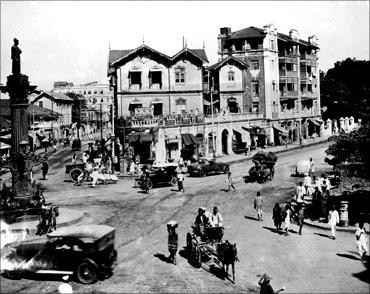
A road junction in Mumbai, circa 1900, with cars and horse drawn traps.
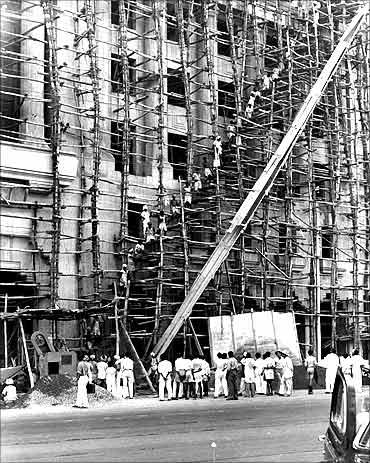
The Mercantile Bank of India under construction in Mumbai.
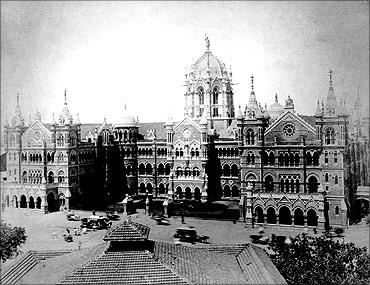
A view of Victoria Station, Mumbai, circa 1900.
Built in 1888 to a design by Frederick William Stevens, it is now known as the Chhatrapati Shivaji Terminus.
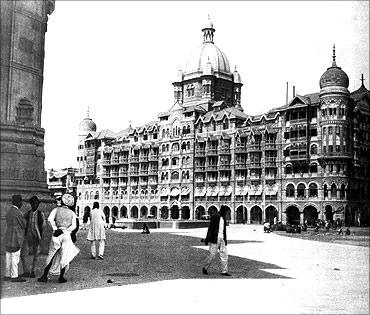
January 30, 1935: The Taj Mahal Hotel (later the Taj Mahal Palace & Tower) in Mumbai, built in 1903.
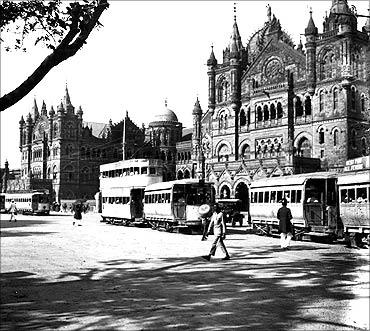
Circa 1915: Trams passing the grand facade of Victoria Railway Station in Mumbai.
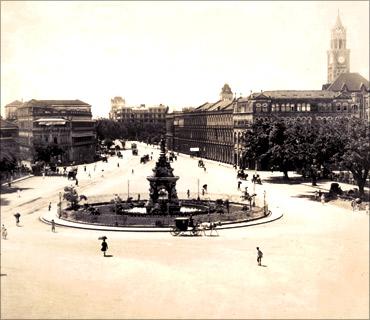
A view of Rampart Row, Mumbai, with Watson’s Hotel on the right, circa 1890.
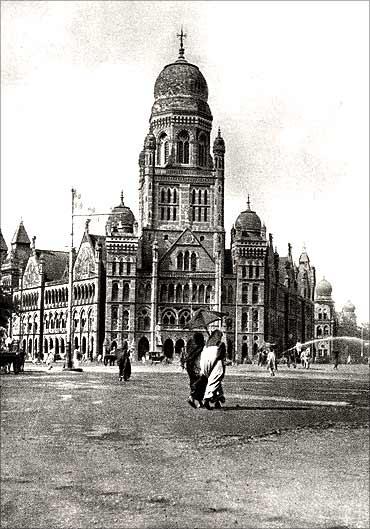
A view of the Municipal Corporation Building in Mumbai, circa 1900.
Designed by Frederick William Stevens, the building was completed in 1893.
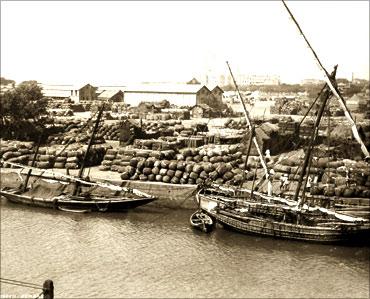
Circa 1900: The Cotton Green in Bombay, India, where bales of cotton are piled by the dockside.
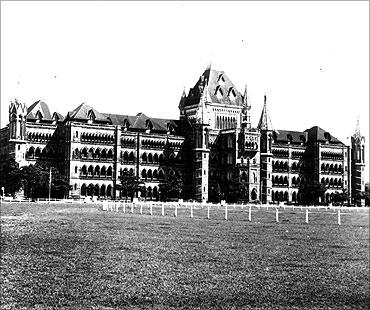
March 1928: The High Court, Bombay, India.
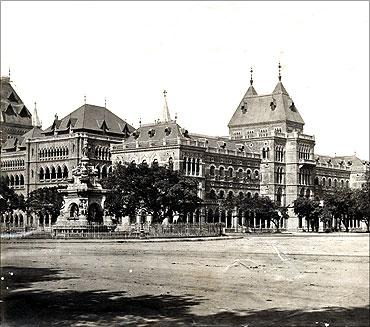
The Public Works Office in Hutatma Chowk (Martyrs’ Square), Mumbai, India, circa 1880.
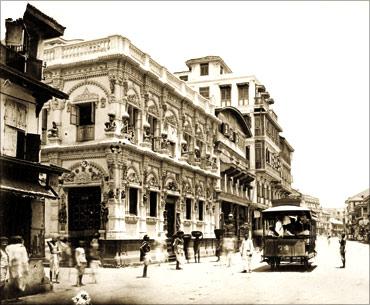
The temple on the Kalbadevi Road in southern Mumbai, circa 1890.
Built in 1875 and dedicated to the Lord Krishna, it is also known as the Dwarkadhish Temple, Radheshyam Temple or Sunderbagh.
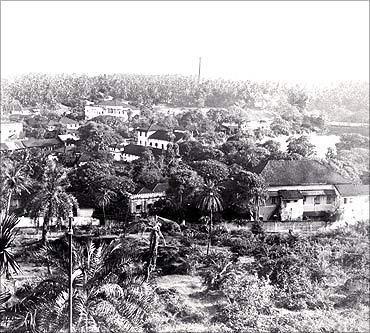
A view over south Mumbai from Cumbala Hill, circa 1890.
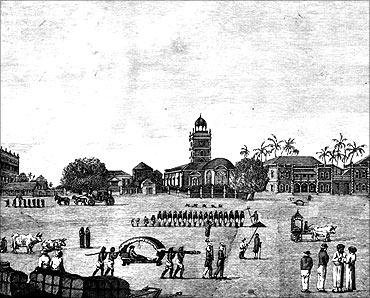
The private army of the East India Company drilling on Bombay Green which is also being used by passers-by, on foot and in various forms of transport.
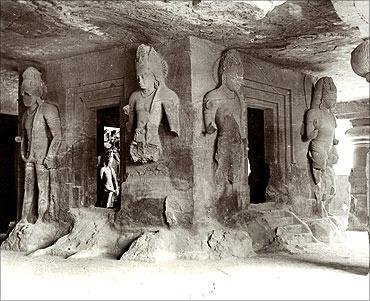
Sculptures of Hindu deities at the Elephanta Caves on Elephanta Island, Bombay Harbour, circa 1890.
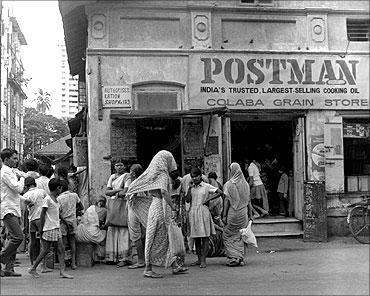
Circa 1970: Customers queue outside a dry food shop in Mumbai.
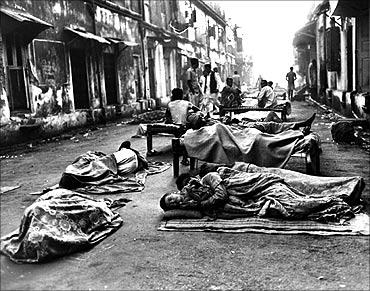
Homeless people asleep on the streets of Mumbai.
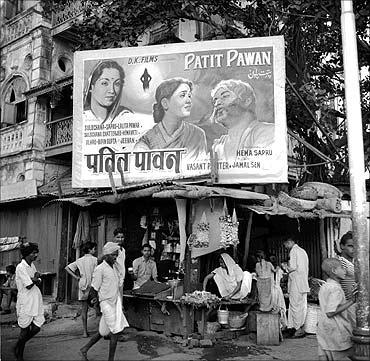
Circa 1955: A poster advertising the film Patit Pawan on a street in Mumbai .
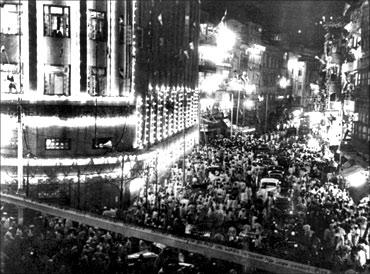
August 21, 1947: Crowds in the streets of Mumbai to see the illumination and fireworks to celebrate the handing over of power in India.
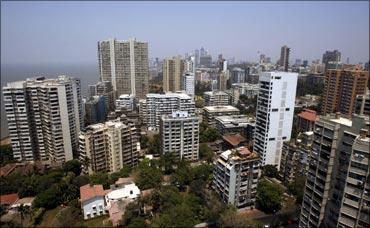
Mumbai, circa 2009: The Mumbai skyline has undergone a sea change over time.
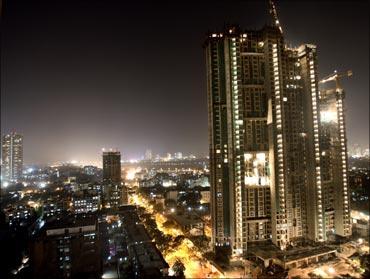
Circa 2010: The housing boom in Mumbai has been nothing short of phenomenal.
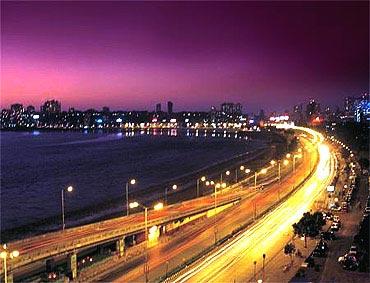
Mumbai’s Marine Drive, a 3-km-long, ‘C’-shaped six-lane concrete road along the coast, is also called the Queen’s Necklace. It is so called because if you see it from an elevated spot the street lights along the road look like a sparkling string of gems.
Source : Rediff

